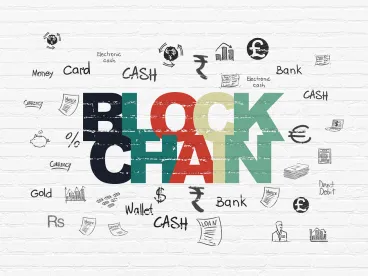On Oct. 12, 2017, the Investor Advisory Committee of the U.S. Securities Exchange Commission (the SEC) hosted a panel discussion on blockchain technology. The session represented another instance of the SEC’s ongoing consideration of the impact of blockchain technology on U.S. securities markets and investors.
Different perspectives on blockchain technology and its application to U.S. securities markets and transactions were shared by the panelists. The panel included Jeff Bandman, a former fintech advisor to the Commodity Futures Trading Commission; Michael Bodson, president and CEO of the Depository Trust & Clearing Corporation (DTCC); Nancy Liao, executive director for the Yale Law School Center for the Study of Corporate Law; Adam Ludwin, CEO of Chain; and Fredrik Voss, vice president of Nasdaq.
SEC Chairman Clayton, during his introduction, emphasized that the SEC continues to seek to foster innovative means to access capital, while continuing to ensure investor safety. Accordingly, the SEC continues to examine the impact of blockchain technology, and continues to raise concerns about avenues created by blockchain technology for bad actors.
Panelists presented an overview of blockchain technology, emphasizing the cryptographic security features inherent in blockchain, which permit parties to transact without having any basis to trust the other party. The degree of trust between parties and the existence of any external factors authenticating a party’s identity and bona fides may impact the configuration of a distributed ledger system, particularly whether a blockchain is permissioned or permissionless.
The Chairman of DTCC considered the impact of blockchain technology on market infrastructure, and emphasized that DTCC has made plans to consider blockchain and to align its use of technology with its overall objectives. DTCC continues to evaluate blockchain applications despite speculation that blockchain does not support a central party performing clearinghouse functions.
Several themes arose from the discussion:
-
Cryptocurrency offerings remain subject to scrutiny.
-
Members of the Investor Advisory Committee expressed skepticism about arguments that Initial Coin Offerings (ICOs) generally constitute anything other than investment contracts that should be subject to regulation.
-
-
Widespread blockchain implementation is years away. Panelists emphasized that, despite the attention surrounding blockchain, they do not yet consider blockchain technology to be “enterprise-ready” and not ready for widespread implementation. Blockchain remains in an evolutionary phase.
-
For adoption to specific financial market functions, blockchain requires:
-
Scalability – DTCC legacy systems handle 100 million transactions per day/25,000 per second;
-
Interoperability — with other blockchain ledgers and legacy systems; and
-
Established governance protocols (relating to access, the ability to terminate operation of an erroneous smart contract, etc.).
-
-
Any blockchain implementation must demonstrate the capacity to handle real-world transactions.
-
Blockchain solutions will be benchmarked against existing technological systems and processes.
-
Replacing existing payment, online storage, and other services with blockchain products may often not result in performance improvements.
-
Blockchain products and smart contracts may lack the robustness to replace all relevant functions handled by a legacy IT system.
-
-
Nasdaq has deployed blockchain ledger technology to manage private company capitalization tables. It will eventually commence proof of concept work to address public market trades.
-
-
Investment in existing systems has been massive. Projects to reduce settlement times to T + 2 were implemented over a 5 year period. Replacing legacy systems without appropriate transition planning would result in system write-offs in the billions of dollars.
-
-
Blockchain may change the rules of engagement for regulators. Regulators may be permitted and/or require direct, real-time access to blockchain records.
-
Parties may provide dedicated “regulator nodes” or “auditor nodes”
-
Real-time access could facilitate earlier detection of wrongdoing and earlier intervention
-
Obstacles to regulator adoption of blockchain:
-
Common standards are required so that data will be available in consistent and comprehensible ways.
-
Government procurement rules intended to protect against corruption and promote transparency can be burdensome and inefficient.
-
-




 />i
/>i

